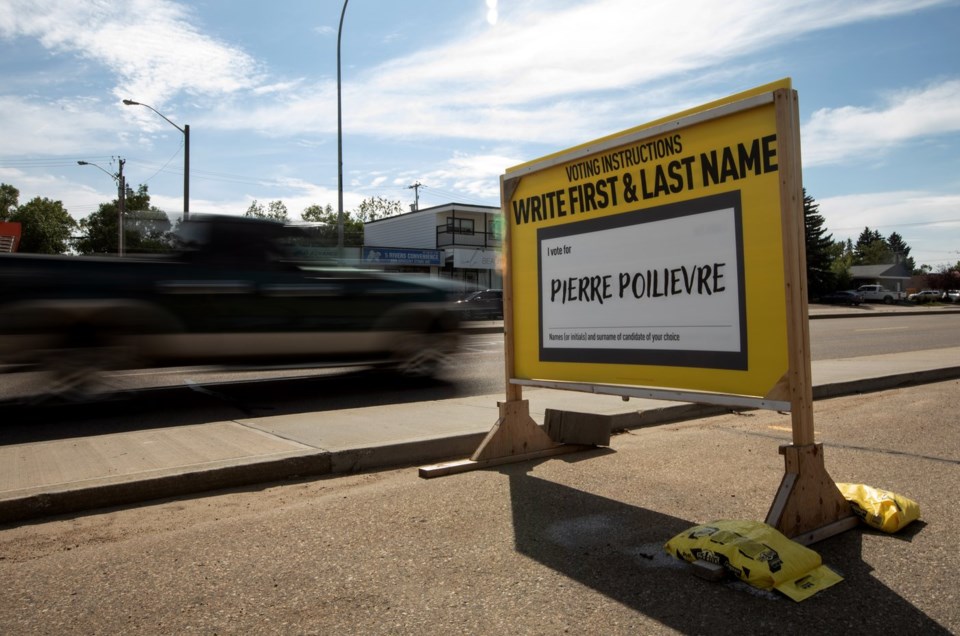OTTAWA — Just over 200 ballots were rejected in the recent Alberta byelection where Conservative Leader Pierre Poilievre regained a seat in the House of Commons, Elections Canada says.
Validated results of the Battle River—Crowfoot byelection posted by Elections Canada show 51,085 valid votes cast in the byelection, and 211 rejected ballots, or 0.4 per cent of the total votes cast.
A record 214 people were on the ballot, most of whom were part of a protest movement called the Longest Ballot Committee, which is pushing for electoral reform to replace the first-past-the-post system.
The group also targeted the Carleton riding in the general election, when there were 91 candidates on the ballot with Poilievre.
Because there were so many more candidates for Battle River—Crowfoot, voters were required for the first time ever to write the name of their preferred candidate on a blank ballot. Thick, coil-bound booklets listing the candidates were available at voting stations.
Matthew McKenna, a spokesperson for Elections Canada, said "the essential criteria for a ballot to be counted is that the elector’s intention is clear," meaning that a ballot with typos could still be counted.
"If the ballot didn’t include the name of a candidate, or included the name of someone who was not running for election in that riding, the intention wouldn’t be discernable and the ballot could not be counted," McKenna said.
Poilievre got more than 80 per cent of the vote in the byelection, receiving 41,308 votes.
McKenna said Elections Canada took "a number of measures" to help ensure electors knew how to use the ballot and could easily find the name of their chosen candidate when they went to vote.
He said the agency released a video on social media to familiarize electors with the new format and said poll workers had training so they would be prepared to answer electors’ questions and provide assistance to those who needed it.
"As we do for every election, we will take the time to assess how things went and will share details in post-election reports which we will publish in the coming months," McKenna said.
"As this was the first time Elections Canada has used a write-in ballot for advance and election day polls, we will look closely at how things went yesterday to see what worked well and what could be improved should such a ballot be used again in future elections."
The Battle River—Crowfoot riding was left vacant shortly after the spring general election, when Conservative Damien Kurek stepped down to make way for the party leader.
Poilievre was elected in the Ottawa-area riding of Carleton seven straight times since 2004 but lost in April to Liberal Bruce Fanjoy. Poilievre was unable to sit as the leader of the Official Opposition during the spring sitting, and Saskatchewan MP Andrew Scheer filled that role in the House. Poilievre remained the Conservative leader, and will resume his role as Opposition leader when the House of Commons resumes in September.
This report by The Canadian Press was first published Aug. 26, 2025.
Catherine Morrison, The Canadian Press



